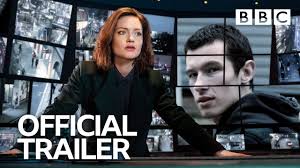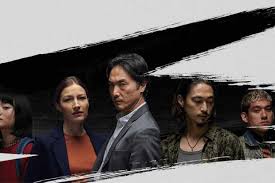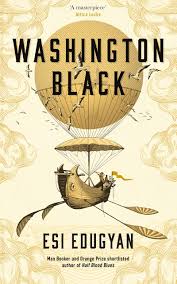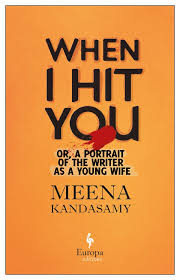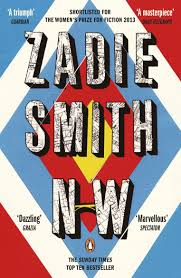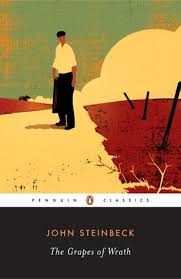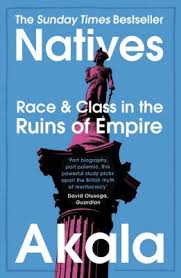Archive for December, 2020
OK, 2020, that’s quite enough from you…
Posted by cathannabel in Events, Personal on December 31, 2020
Normally, as New Year’s Eve approaches, I post some reflections on the year just passed, hopes for the next one, that sort of thing. This year, there seems to be nothing I can say about the year that I haven’t already said, or that others have not said better. I wrote about the loss of my lovely brother here, I bade au revoir to the EU here, I said my piece, for what it’s worth, on #BLM here, and I’ve referred to the pandemic, directly or indirectly, in most of my posts since March.
2020 was wretched, for all of us, to different degrees (we may have all been in the same storm, but not in the same boat…). Let’s not rehash that now. And if we ever thought we could embark on a New Year blithely confident in what lay ahead, the last few years, and especially this last one, have disabused us rather brutally. So I won’t look ahead much either, except in very general terms.
I do, though, want to celebrate the people who’ve made this year a little bit better, directly or indirectly.
NHS staff – and by that I mean not only GPs, consultants, doctors, midwives and nurses, but health care assistants, the staff who clean the wards, who feed the patients, who provide the services that underpin front-line patient care. I know that many of those staff have paid a price this year, in stress and anxiety, in their own losses and grief, in sickness and, in a tragically large number of cases, with their lives.
The people who keep essential basic services going – the bin collectors, the postal workers, the supermarket staff (I know from chatting to staff at the till that they have at times been subjected to abuse from customers when supplies run short or queues are long), the bus drivers, the lorry drivers moving supplies around the country… We tend not to think about them, until something we take for granted doesn’t happen.
The international teams of scientists and researchers who’ve been battling to find out everything they can about the virus, how it spreads, how to treat it and how we can protect ourselves against it. And many have been battling too to counter the relentless tide of misinformation and conspiracy theories that flows on social media. (Shout out to Prof. Carl Smythe (Professor of Cell Biology) at the University of Sheffield, who’s been refuting arrant (and lethal) nonsense on a daily basis for the last nine months… )
The people who’ve helped out, whenever and wherever. Khalsa Aid, a Sikh charity (who also sprang into action during the Somerset floods a few years ago), one of a number of organisations who delivered provisions to lorry drivers stranded at Dover because of the border closures. And the cafés, shops, pubs and other small businesses (many struggling themselves during the pandemic) who nonetheless stepped up to offer free meals for schoolchildren during school hols when the government declined to do so.
Some people who have brightened our world, or my life in particular, in absolutely no order: The Doctor, Marcus Rashford (and his Mum), Jacinda Ardern, Pariah Press, Angela Davis, Ruth Arnold, Jackie Kay, David Olusoga, Persephone Books, The Good Place, Greg Fell, Songhoy Blues, Caroline Shaw, Michael Rosen, Hilary Mantel, Music Planet, Céline Sciamma, Lissa Evans, Inspiration for Life, Alyn Shipton, Jean-Luc Picard, Ensemble 360, John le Carré, J to Z, Stephen King, Brian Lewis’s Lockdown Walks. You’ve made me smile, given me hope, made me dance around the kitchen, informed and challenged me, brought me books and films and music to inspire and delight me. Love and gratitude to all of you.
And whatever is around the corner, we can keep our eyes on two beacons of hope.
Firstly, there are the vaccines, which will save lives and reunite us with our friends and families – oh, the hugs that will be hugged.
And then there’s the inauguration of a new US President and VP. Whatever their flaws, and whatever difficulties the GOP will place in their path, once again this major power will be led by people with intelligence, integrity, concern for the powerless at home and abroad, and a commitment to engage positively with the world.
Some stuff that gives me a glimmer of hope and optimism, that I hang on to in the bleak nights:
First off, I refer you to the project I’ve been involved with in recent weeks. Inspiration for Life is the charity I helped to set up in 2012, and then chaired until last month, which raises funds for cancer charities. Our major fundraiser has always been the 24 Hour Inspire, a 24-hour lecture marathon, which was, obviously, impossible to run in the midst of a pandemic. So instead, we offered 24 Reasons to be Cheerful, our on-line Advent Calendar. There’s some lovely stuff – music from Fay Hield, Ayusp, the Cancer Choir and the Creating Hope choir, plus comedy, art and craft, a bit of science, and contributions from our partner charities. If you feel moved to donate a few quids, that would be lovely.
One of the films is a reading of the poem ‘Sometimes’, by Sheenagh Pugh, which I usually include in my NYE post. This time I’ll let you hear Ruth Arnold reading it.
Hang on to your hat. Hang on to your hope. And wind the clock, for tomorrow is another day
Theirs is a land with a wall around it
And mine is a faith in my fellow man…Sweet moderation, heart of this nation
Desert us not, we are between the wars(Billy Bragg, Between the Wars)
We are building up a new world.
Do not sit idly by.
Do not remain neutral.
Do not rely on this broadcast alone.
We are only as strong as our signal.
There is a war going on for your mind.
If you are thinking, you are winning.(Flobots – We are Winning)
The simplest and most important thing of all: the world is difficult, and we are all breakable. So just be kind.
(Caitlin Moran – How to Build a Girl)
If there’s no great glorious end to all this, if … nothing we do matters … then all that matters is what we do. ‘Cause that’s all there is. What we do. Now. Today. … All I want to do is help. I want to help because I don’t think people should suffer as they do, because if there’s no bigger meaning, then the smallest act of kindness is the greatest thing in the world.
(Joss Whedon – Angel)
Never be cruel, never be cowardly, and never, ever eat pears! Remember, hate is always foolish. and love is always wise. Always try to be nice, but never fail to be kind. … Laugh hard, run fast, be kind.
(The 12th Doctor, Twice Upon a Time)
Love is wise, hatred is foolish. In this world, which is getting more and more closely interconnected, we have to learn to tolerate each other. We have to learn to put up with the fact that some people say things that we don’t like. We can only live together in that way, and if we are to live together and not die together we must learn a kind of charity and a kind of tolerance which is absolutely vital to the continuation of human life on this planet.
(Bertrand Russell, Face to Face interview, 1959)

Last time I posted these, we had no thoughts of a pandemic, of health care workers dying, of care home occupants separated from their families, of theatres, concert halls, football grounds, churches empty of people, of pubs and restaurants with doors closed to customers, of facemasks and R numbers and shielding and bubbles.
Nonetheless, they hold true. And they’re worth holding on to.
And maybe, just maybe, there will be blue skies ahead…
2020 On Screen
Posted by cathannabel in Film, Music, Personal, Television on December 27, 2020
Normally, there’s quite a bit about cinema in this review of the year on screen. This year was, obviously, different, and whilst I could have watched more films on screen via DVD, for a host of reasons I found refuge in telly, in short bursts of drama rather than longer forms. My concentration was shot in the first part of the year, with the loss of my brother, and the onset of the pandemic.
I got used to the latter, to the extent that those of us who weren’t directly affected got used to it (finding new routines involving lots of local walks and evenings in, as we had the luxury of no work or financial pressures, plenty of space indoors and out, and no one close to us being ill).
As for the former, grieving isn’t a linear process, one can seem to be fine and then walk into a wall that wasn’t there before, one can seem to be fine and then be ambushed by a memory, an image, a word. So there are things we’ve avoided watching because, well, why deliberately provoke it? The exception to this was Little Women, of which more below, which we saw at the cinema very early in 2020, in full knowledge of how it would foreshadow the inevitable loss that we were facing.
The Small Screen
Please note: this reflects what we have watched in 2020, and thus includes old stuff that is circling eternally on ITV 3 and Drama, stuff from 2019 that was still sitting on our BT Vision Box as the year turned, as well as this year’s TV. This is the telly that has diverted, amused, intrigued, enlightened, moved and informed us during 2020. I’ve missed out the things that we started watching and then decided life was simply too short to waste time on, but, whilst I don’t normally spend much time talking about things I haven’t liked, there are a few dishonourable mentions here, mainly for things that I expected to like and in the end was very cross with. I’ve linked to some reviews, where they are not too spoilery, but as always, caveat lector.
You know you’ve watched too many episodes of Midsomer Murders when the ITV 3 intro causes eruptions of rage every single time it invites us to go to the ‘infamous village of Midsomer where only one thing’s for certain’. As any fule no, Midsomer is not a village but a county. I mean, that body count would be just too improbable in just one village, wouldn’t it? Another clue is when you overhear someone saying ‘Oh, hello, what are you doing here?’ and turn abruptly, expecting imminent violence with a pitchfork or perhaps a giant cheese. It’s very silly, and the writing is variable but at its best, it knows exactly what it’s doing, and there are lots of little in-jokes about the bloodthirsty nature of these picturesque villages (like the incoming DS from the Met who is shocked at the carnage). We’ve re-watched all the Nettles series, which allows us to marvel every episode at how Joyce manages to get involved in every single case, because she is a member of every single committee, book club, art class, choir, am dram group, and so forth in the entire county. I have my suspicions that she is actually the mastermind behind the whole murderous business.
There were lots more weighty contenders, of course. Foreign language offerings included Nordic crime from Twin, Before We Die, Wisting, and Below the Surface, and best of all The Bridge, whose first two series we had missed when they were first shown (I know! What were we thinking?) and enjoyed very much, whilst concluding that the plot, especially perhaps in Season 2, was a little too complex for its own good and if one was being picky one might mention a couple of possible holes. But one won’t, and one is now re-watching series 3 and 4. Saga is, of course, a most wonderful creation.
Wallander is obviously Nordic but Young Wallander is in English. It’s an oddity – if we hadn’t been alerted before watching we would have been most bemused by the contemporary setting. There are nods to ‘our’ Wallander (the father who paints the same scene over and over again, the girlfriend called Mona) but clearly this is not the equivalent of Endeavour. It was enjoyable, if not unmissable. Van der Valk is a remake of a 70s series which we never watched – again it’s in English but set in Amsterdam. The setting was, I fear, the best thing about it. The plots were ludicrously baroque, the motivation of the culprits unconvincing, the script clichéd – and if anyone wonders how I dare level such criticisms when I’ve just admitted to a fondness for Midsomer Murders, MM has a lightness, a touch of humour, that VdV lacked.
The latest series of Spiral had us shouting at the telly, primarily at Laure and Gilou. Excellent stuff – our deeply flawed heroes may be infuriating but they’re convincing and won our hearts a long while back, and the plot was gripping and tense. The other French offering was The Other Mother, based on Michel Bussi’s novel Maman a tort, which was also excellent – the plot was complex but just the right side of incomprehensible. The Team was a multinational European offering – it’s series 2 but with no characters in common from series 1, just the concept of a multinational team pulled together from different EU nations to solve a crime.
We also watched the movie Goldstone, which is linked to the Australian crime series Murder Road, whose new series is awaiting our attention, and the much lighter-weight but diverting Harrow, about an Aussie pathologist, the sort of pathologist who investigates crime, not the sort that gets called in when there’s a corpse and says ‘I’ll know more when I get him on the slab’ and then eats his sandwiches whilst foraging about in someone’s insides – see MM, Vera, et al. They know their place, unlike Harrow.



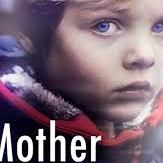


We visited the frozen landscapes of Canada for another dark and dour series of Cardinal, and back to the US for The Sinner (this was series 2, with only Bill Pullman in common with series 1). A much more unusual setting for Baghdad Central – an excellent, tautly plotted thriller with powerful performances by Waleed Zuaiter and Bertie Carvel. And we visited the past – Vienna in the 1900s -for Vienna Blood. The protagonists are an ‘unlikely duo’ of a brash young medical student and disciple of Freud, and a battered older cop, the production is very Sherlockian, and altogether it was slightly daft, but enjoyable, with a darker undercurrent running through it, of the endemic antisemitism of the time and the place, whose consequences we know too well.
Back in the UK, we enjoyed the Agatha Christie dramatization of The Pale Horse, with Rufus Sewell; Guilt, a blackly comic take on murder, with the always engaging Mark Bonnar; and McDonald & Dodds, with Jason Watkins, another lighter weight crime series, with good enough performances and writing to be worth catching when it returns. We watched Judge John Deed, which turned into a montage of 90s conspiracy theories about phone masts and the like, with improbable legal scenarios, and a protagonist whose compulsion to seduce every attractive woman he meets (key witness, fellow barrister, ex-wife, his therapist) becomes tiresome and frankly a bit creepy. Actually, all of the characters are intensely annoying, and one watched it mainly to be infuriated with it. Series 2 of Bancroft was just as ludicrous as the first.






The really good stuff:
Strike, Series 4 – charismatic leads, great plots, thoroughly enjoyable series, weaving the personal narratives of Strike and Robin in with the investigations very skilfully.
Hidden, Series 2 – Welsh noir – very, very noir – with an excellent female lead. As with the first series, the ending brings a very compromised and uncomfortable resolution.
Deadwater Fell – dark psychological drama, excellent cast, very unsettling.
Elizabeth is Missing – based on the book by Emma Healey. The lead character, Maud, has dementia, so when she insists that her friend Elizabeth is missing, no one takes her very seriously. Her recent memories keep getting mixed up with much older ones, of a much older disappearance. Glenda Jackson’s performance is absolutely mesmerisingly brilliant.
Dublin Murders – based on the first two books of the Tana French series. The plots are interwoven in a way that perhaps didn’t totally work, but the quality of the writing and the performances carried the day.
Endeavour – the penultimate series, apparently. The quality of the writing continues to be an absolute joy. The interplay between Morse, Strange, Thursday and Bright is so well played, often very emotionally powerful even though (or perhaps all the more because) none of them speak easily about their feelings.






Vera – Brenda Blethyn is a fine-looking woman, and so somewhat at odds with the descriptions in the novels, but she gets the character beautifully. The way in which the relationship with Joe’s replacement as DS is developed is convincing and touching (I particularly like the way he kneels to help her put on her crime scene shoe covers. As an older woman with dodgy knees I can so identify).
The Capture – about surveillance and deep fake images and whether or not we can trust what we see… A nicely paranoid atmosphere and a gradual blurring of the lines between right and wrong
Giri/Haji – my pick of the year, without a doubt. That it didn’t get commissioned for a second season speaks to a certain cowardice amongst the decision makers, but as the Independent’s reviewer says, it is pretty much faultless as it stands, so maybe it doesn’t need a sequel. This was stylish, often audacious, bloody, darkly humorous – really striking and memorable telly. Applause to all concerned.
Homeland returned for the last time. The final series was an encapsulation of everything that we’ve seen over its whole run, very consciously a drawing together of many of the threads from all the previous series, satisfying without being oversimplified. As a jazz fan I was delighted that Carrie’s love of jazz, rather forgotten about in recent series, was foregrounded in the final scenes, as the wonderful Kamasi Washington performed live on stage.
Deutschland 86 took us to the brink, everything in place for the collapse of the GDR and the destruction of the Wall. I hope we get one more series, to take these characters, and us, through those momentous events.
We would not normally have thought of watching The New Pope. The trailer, rather bafflingly, showed Jude Law in tiny (very tiny) Speedos walking along a beach, as women gazed, and fainted away, on either side. Hmmm. However, we knew that my brother had a moment on screen as one of the Cardinals gathered at a funeral, and we had to watch – and watch with full attention – to ensure we didn’t miss him. I’m glad we did – it was bonkers but beautiful. (So we got to see both of my brothers on screen this year, strangely enough, our Aidan in purple robes in The New Pope, and our Greg in an orange trackie at a football match over 40 years ago – see below.)
Philharmonia was bonkers too – the orchestral setting was unusual, and it was enjoyable, even if one didn’t ever believe a word of it.
The Accident was grim, and some of the plotting was a little bit careless, I thought – or maybe setting up for a second series where other things come to light? No idea. I just felt that – without giving too much away – a character was introduced who played a key role in events, but that role never seemed to be properly explored, and the images at the very end seemed, almost, to suggest that the truth was something other than the established official version. I may have imagined it! There were some powerful performances, from Sarah Lancashire and Joanna Scanlan in particular.
The Plot against America, adapted by David Simon (The Wire) from Philip Roth’s alt history, in which Charles Lindbergh, running on an America First ticket, wins the 1940 US election rather than FDR. It is, of course, incredibly topical (more so than the novel, which came out in 2004, when the events of 2016 could not have been imagined). It was powerful, incredibly tense, and subtle when it needed to be. Its final moments – and this is where it differed significantly from the book – with the central characters tensely awaiting the outcome of another election, hoping and fearing the outcome, kept coming back into my mind in November.
We’re saving up Small Axe. Looking forward so much to this.

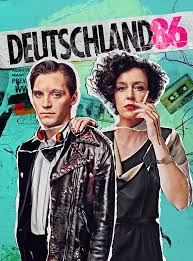




Let’s draw a veil over the awful Batwoman. Wooden acting, clunky scripts, a plot that made no sense at all.
Devs – sci fi that’s about ideas, as much as it’s about tech. There was no predicting where this one was heading, or where it ended up. Whether it entirely made sense, I’m not sure, but it was, as the Guardian reviewer put it, a ‘deep, dark, wild ride’.
Dracula – yet another take on the Stoker original, this one was about as faithful as any of the others, but it really went for it, with conviction and style. As Lucy Mangan in the Guardian put it, ‘It’s a proper job […] And that means proper scares. No spoilers, but the one in the [redacted] when the [redacted] suddenly [redacted] had me clinging to the ceiling. I advise parental supervision at all times. My dad was annoyed at having to come over, but needs must when the devil calls and starts emanating from your screen.’
His Dark Materials – As always with a screen version of a book/series that I have loved with a real passion, I was anxious that the adaptation would mess it up. I needn’t have worried. The performances are grand, the visuals stunning, and it’s powerful stuff. We loved it, and are looking forward to Series 2.
Star Trek: Discovery – we’re through the wormhole now, and it’s Trek, Jim, but not as we know it. This allows for real character development, though if I were to be picky I’d ask them to rein in the reaction shots of awe and wonderment and so forth. No idea where we’re headed but we’re now liberated from the need to be consistent with the existing series, which is pretty exciting, if you’re a long-term Trekker.
Star Trek: Picard – it’s a good time to be into Trek! Not only Discovery, but Picard too. My love for Jean-Luc is undimmed and he carried this very effectively. Some lovely shout-backs to NG, but its not pure nostalgia for the fans.
The Walking Dead – The first part of the season ended prematurely due to the pandemic – we only got the finale in October and now have to wait till next year for the second half. The series has come back strongly from quite a long slump, and whilst some of the regular gripes (apocalyptic battles which end up with only one peripheral character being killed, regular characters behaving with untypical stupidity to bring about some new peril, that sort of thing) are ever present, it’s back to being essential after a period where it was a mere duty watch.






Doctor Who – This year’s series was controversial amongst some Whovians, for seeming to change some of what we thought we knew about the Doctor’s origins. But did it? After all, our main source was the Master, who, as we know, lies… We will see. The Doctor did make a few appearances later in the year from her Judoon cell, to give us hopeful and inspiring messages about coping with lockdown isolation, which, I have to admit, brought a tear to my eye. She’ll be back on 1 January 2021, and let’s hope that the Tardis is a harbinger of hope for a better year ahead.
Some films watched on TV: Jurassic Park: Fallen Kingdom was perfect New Year’s Day fare. And the general stress of lockdown drew us to Abraham Lincoln: Vampire Hunter, and Pride and Prejudice and Zombies. The first I rather enjoyed – the script was just clever enough, with some neat historical references buried in amongst the improbable action. The second, well, once we had chuckled at the Bennett girls practising martial arts and strapping lethal weapons to their stockinged legs, it was slightly thin stuff. Last but not least in this category, the only superhero movie we watched this year, very unusually, was Deadpool, which was, to say the least, different… Very funny, very rude.
We’re saving up Agents of Shield (the last ever series) and Series 2 of His Dark Materials – some things to look forward to early in 2021.
We caught up with Modern Family, which we’d abandoned at the end of series 4, for no good reason. I found myself laughing loud and often. The characters don’t develop, not really, but when the writing and the performances are this good, there’s plenty of comic mileage to be had. We discovered Friday Night Dinner (only series 1 so far) which also made us laugh a lot.
The Good Place managed to be both very, very funny and profound. It made full use of its fantasy license, regularly wrongfooting us in ways that made us shout out something along the lines of WTF, and its final couple of episodes reduced me to real sobs, not just ‘something in my eye’ but full-on weeping. And yet, right up to the end, it was very, very funny too. A fabulous achievement.
We enjoyed the ebullient and charismatic Stuart Copeland in a couple of docs, his own Adventures in Music series, and his episode of Guitar, Drums, Bass (Lenny Kaye and Tina Weymouth represented the other instruments). We enjoyed the Lennon at 80 radio programme hosted by Sean Lennon, and a documentary about John and Yoko, Above Us Only Sky. The film Matanga/Maya/MIA was fascinating, though it left me somewhat dubious about her, not so much musically as politically. K T Tunstall presented an absolutely charming documentary about Ivor Cutler. A number of classical documentaries featured members of the remarkable Kanneh-Mason family: an Imagine programme, This House is Full of Music, Young, Gifted and Classical, focusing on cellist Sheku Kanneh-Mason, who cropped up too in the excellent Black Classical Music, fronted by Lenny Henry and Suzie Klein, which introduced us to a number of composers we had not heard of previously. This last programme tied in with Black History Month, as did Gospel According to Mica, in which the singer explored the history of the genre through six songs, taking us from slavery days through the civil rights struggle to our own time. Soul America charted some of the same history, though taking a much narrower slice of history, broadly from the transmutation of gospel into soul, through the socially conscious sounds of the late 60s, to the sexual healing of the ’70s. Music, Money & Madness was a fascinating look at the background to Rainbow Bridge, the incoherent mess of a film that features Hendrix’s excellent 1970 gig in Maui, Hawaii.


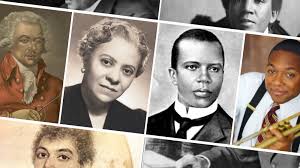

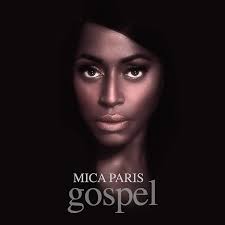

Afua Hirsch presented African Renaissance (on African art), and co-presented with Samuel L Jackson the outstanding and at times overwhelming Enslaved. David Olusoga’s Africa Turns a Page put the spotlight on African writers, some familiar, others less so (see my books blog for some contemporary African fiction).
I Am Not Your Negro is an extraordinary film. It’s a 2016 documentary directed by Raoul Peck, based on an unfinished manuscript by James Baldwin. It explores the history of racism in the US through Baldwin’s reminiscences of civil rights leaders Medgar Evers, Malcolm X and Martin Luther King. Baldwin was one of the African American writers who I discovered in my teens and who inspired and challenged me. The film left me feeling quite shaken, such is the power of the images and Baldwin’s words.
France 1939: One Last Summer – A poignant compilation of home movies from France, from the summer of 1939. Impossible to see even the most carefree moments without the foreshadowing of what was to happen.
Confronting Holocaust Denial with David Baddiel was thoughtful, intelligent and impassioned.




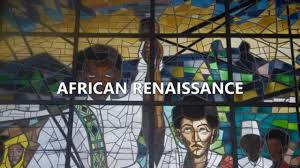

On a somewhat (much) lighter note, Rome Unpacked was a lovely corollary to our recent visit, reminding us of how much we had yet to see (looking forward to our next trip, in the after-times…). I also fell somewhat (quite a bit) in love with Giorgio Locatelli. One quibble however – they visited the Jewish Ghetto and talked about the history of medieval antisemitism, without mentioning that the Ghetto’s inhabitants were deported and murdered by the Nazis in 1943. It’s not that I wanted the programme to delve into that in any detail – it just needed a one sentence coda to that section of the programme, rather than leaving the impression that murderous anti-semitism was something from the distant past.
A documentary about Nottingham Forest’s 1970s European Cup successes turned out to be a much more emotional experience than I’d been anticipating, when I caught sight of my lovely kid brother, who died in February, on one of the clips. He’d been a ball-boy at the first-round match against Liverpool in our 1979 Euro cup campaign, and was caught on camera at the end, clapping the team off the pitch and then punching the air in celebration. I sobbed for quite some time after that.
The Big Screen
2020 cinema began shortly after New Year, with Little Women. I knew what was coming, of course, having known the books for most of my life, but it didn’t stop Beth’s death being devastating, as I knew how soon I would be losing my little brother. I have the DVD but will need to brace myself before rewatching, particularly the bits where… well, if you’ve seen it, or any of the previous versions or read the book, you won’t need me to spell out the parts of the film which will break me on the rewatch. In fact, I won’t even say any more now, just refer you to Rick Burin’s review. Hell, it broke him, and as he says, ‘I’m northern and into football and stuff, but I just kept crying’.
And then a two-film day in mid-March, watching Celine Sciamma’s Girlhood (second time round for me) with Liz at the Showroom, and then in the afternoon Sciamma’s newest film, Portrait of a Lady on Fire, with Martyn. I loved both films, I found Girlhood just as powerful as I had the first time, with several moments that are firmly lodged in my mind, and Portrait definitely requires a re-watch. I wrote about both films for this year’s International Women’s Day blog but I’m going to send you to read Rick Burin again, as he reviews all of Sciamma’s films and much better than I can.
Note that the films I did see in 2020 totally kicked the Bechdel test‘s ass.
And that was it. No more cinema – they did reopen, of course, for a while, but as we have been super-cautious throughout the pandemic, we did not take advantage (I renewed my Showroom membership, as a gesture of support).
Can’t talk about cinema in 2020 without noting the tragically early death of Chadwick Boseman. I only knew him as Black Panther but that role alone was enough to imprint him on my consciousness – it was a performance of grace and power, as well as huge cultural significance. Will look out for chances to see Boseman’s other movies.
Previous years’ cultural highlights have included Opera North at Leeds Grand Theatre. Obviously, since March, the pandemic has put paid to that. In fact, I’d had to drop out before that – I could not attend the three productions in January/February as my brother’s condition worsened and I knew both that I needed to be available to see him whenever I could, and that I really couldn’t commit to producing a review in a reasonable timescale, or at all. I had no idea when I made that decision that my stint as an opera reviewer would have come to an end for the foreseeable future. I loved doing the reviews, and had a marvellous time seeing superb productions of works from Monteverdi to Britten and all points in between.
The move to on-line cultural activities, devastating as it was to the future of live performance, offered some delights. The Sheffield Classical Music Festival in May gave us access to some joyous and uplifting chamber music, as members of Ensemble 360 filmed performances in their gardens and living rooms. It was fabulous, even if it made us miss Music in the Round in the Crucible Studio even more.
Other online treats were Ian Dunt talking about being a liberal, David Olusoga talking about Black and British in Black History Month, Kit de Waal talking about My Name is Leon (all three talks part of Sheffield’s annual Off the Shelf festival), Sarah Churchwell and Bonnie Greer talking about the US election outcome (part of the national Being Human festival) – and two chances to hear and see someone who was an idol during my teenage years, the awesome and inspiring Angela Davis, first in her own South Bank lecture, and then in conversation with Jackie Kay (as part of Manchester Literary Festival). I might, theoretically, have got to the Off the Shelf events in normal circs. But I wouldn’t have made it to the South Bank, or the University of London, or even across the Pennines to Manchester.
But I long to get back to live chamber music and theatre at the Crucible, live opera at Leeds Grand Theatre, arty French movies at the Showroom and blockbusters at the IMAX… We’ll get there, thanks to the vaccine(s). And it will be so very lovely when we do. I may, just possibly, weep.
Screens, in general, have been our lifeline in the plague times. Not just the entertainment and enlightenment of what our television channels offer, but the Zoom/Messenger/Facetime link ups with the people we love, who we can’t be with. It’s not the same, obviously, and in the early days at least it made me feel, briefly, sadder once we’d waved goodbye and blown kisses to the small figures on our laptop screens. But our isolation has been less stark, less absolute, and at best those virtual encounters have made us feel hope, made us feel loved, given us the chance to support each other.





2020 Books: Full-time Report
Posted by cathannabel in Literature on December 9, 2020
Reading has taken me out of lockdown, out of Tier 3, out of my own postcode. As a quick perusal of the titles below will show, it’s hardly been six months of escapism – that’s not the point. The point is that as life closed in, books were always there to take me to different places, different times, where I could hear different voices telling fresh new stories, or old, old stories in a new voice. I’ve been in Ancient Greece, in Finland at the start of the twentieth century, and in the dustbowl of Oklahoma. My fascination with WWII has taken me to besieged Malta, to the Burma railroad, and to the home front and the Blitz. I’ve travelled to India, Indonesia, Japan, Kenya, West Africa, the Caribbean, postwar Vienna and Prague. I’ve listened to a diversity of voices and a diversity of ideas. I’ve read for pleasure and diversion, and for enlightenment, and I’ve found plenty of both (often in the same books).
As always, the few things I read that weren’t up to much I have simply ignored – I want to share the good stuff, to enthuse other people about the books that have enthused me. I’ve linked to reviews where they’re not too spoilery, but click with care! I may come back to this after I’ve published it, to add on whatever I read between publication and midnight on 31 December – there’s a fair bit of reading time between now and then. I hope that something on this list might inspire you to read and enjoy. Do tell me, if so. (If you read something on my list and hate it, I do apologise, but don’t feel you have to tell me…)
FICTION
Ben Aaronovitch – I’ve continued to devour the Rivers of London novels, and have kept up with the series this autumn/winter by reading October Man (a novella), False Value, and a very tasty collection of short stories, Tales from the Folly.
Arvand Adiga – The White Tiger. Booker Prize winner from 2008. I didn’t love this, but I was gripped by it. I found it difficult to engage with the narrator – not that I always have to identify with, let alone like, the protagonist – but it was vivid and visceral and compelling.
Claire Askew – What You Pay For. A thriller in which the fact that we know or can work out early on some of the twists and turns of the plot doesn’t matter, because the strength of it lies with the two interweaving voices through whom it is told. An excellent follow-up to All The Hidden Truths, featuring the same detective but a very different story, focusing on a school shooting.
Nadeem Aslam – Maps for Lost Lovers. This is remarkable. It’s profoundly melancholy, sensual, full of colours (the fabrics, the birds and butterflies), smells of perfume and spices, sounds (jazz, and Nusrat Fateh Ali Kahn). We’re in an English town, called Dasht-e-Tanhaii, at least by the Pakistani communities who live there, and who’ve given the streets their own names too. It’s their home but they don’t feel at home there, constantly reminded that they do not belong. The book does not shy away from the brutality of the harsh orthodoxy that means everyone lives in fear of transgression, but, as Kamila Shamsie says, ‘love never steps out of the picture’.
Margaret Atwood – The Penelopiad. A funny, dark, feminist retelling of the story of Odysseus, from the point of view of the wife who waited – and the handmaids who were hanged on Odysseus’ return…
Oyinkan Braithwaite – My Sister the Serial Killer. One of my top crime books. Described as ‘a morbidly funny slashfest’ by the Guardian’s reviewer, which is fair enough. One of the best openings of anything I’ve read for a while.
Jane Casey – Silent Kill. A Maeve Kerrigan novella, from the perspective of one of the secondary characters in the main series. Nicely done – as well as standing alone from a plot point of view, for afficionados of the series it sheds light both on the main protagonist here but on many of the other characters who we’ve not seen from this angle before.
Christopher Cleave – Everyone Brave is Forgiven. I wept my way through this. It took me by surprise, firstly because the two books I’ve read (and loved) by Cleave have had contemporary settings, and this one is WWII, secondly because at first I thought the clipped and brittle dialogue might become wearing. But the setting was beautifully described and the way the characters spoke was as revealing as it was meant to be concealing. It got under my skin and the more passionately I cared about those characters, the more I longed for them to be safe and happy and the more I grieved when bad stuff happened. (Spoiler: it did)
Ann Cleeves – I had a major catch-up with her Vera and Shetland series, and binged all the ones that I’d not read yet over the course of a week or so. I’ve also discovered and binged the Inspector Ramsey books, published in the 1990s and recently revived as e-books. Ramsey rapidly grew on me – one reviewer described him as ‘quiet, puzzled, human’, which is quite right.
Kit de Waal – My Name is Leon. I read The Trick to Time last year, and loved it. This was brilliant too. The voice is that of what we would now call a ‘looked-after’ child – never sure if that is a euphemistic term, or just a naively optimistic one… It’s another book that I wept through and hardly dared to read on at some points, as I so badly wanted Leon to be OK. It’s compassionate and warm and based in real knowledge of the care sector. It’s hopeful too, although de Waal noted in a recent interview (for Sheffield’s Off the Shelf festival) that we leave him aged nine, with his most turbulent years to come and the odds are stacked against him.
Elizabeth de Waal – no relation to Kit, to the best of my knowledge. Elizabeth was part of the Ephrussi family, who lived in the eponymous palace in Vienna until the Anschluss. Their story forms part of Elizabeth’s grandson Edmund de Waal’s enthralling The Hare with the Amber Eyes. The Exiles Return is full of melancholy, and of humour. It was unpublished in Elizabeth’s lifetime, and has been brought out by Persephone Press, and is as beautiful to look at as all of their publications.
Helen Dunmore – The House of Orphans. I honestly thought I’d read all of Dunmore’s fiction, so it was a very welcome surprise to find this one. It isn’t my favourite of hers, but it was a compelling read and the setting was new to me (Finland in 1902)
Esi Edugyan – Washington Black. I read Half-Blood Blues a few years back and this is even better. The horrors of the plantation were familiar territory from other reading (Yaa Gyasi’s Homegoing and Andrea Levy’s The Long Song, to name but two recent reads, but going back to Alex Haley’s Roots), but Edugyan’s narrative takes off (literally) from there. It’s extraordinary, breathtaking and audacious.
Lissa Evans – V for Victory/Their Finest. I discovered Evans earlier this year, and had already read Spencer’s List, Old Baggage and Crooked Heart. I was waiting eagerly for V for Victory and it did not disappoint, funny and moving and beautifully written. As was Their Finest. Both, as the titles suggest, are set in WWII and paint a vivid picture of the home front, with the kind of sharp observation that is totally convincing. But most of all, the characters live and breathe and stay with you long after the book has ended.
Bernardine Evaristo – Girl, Woman, Other. Richly deserving of its awards, this is a glorious polyphony, the voices weave in and out of each other’s stories, each having its moment in the spotlight, so that we see the people we meet from different points of view, including their own.
Richard Flanagan – The Narrow Road to the Deep North. A harrowing read. The descriptions of life in the PoW camps and the building of the Burma railway are hard to cope with. But truly, where one’s heart breaks is in the lives that the survivors have afterwards, the weight they have to carry from their experiences, the impossibility of anyone actually understanding.
Aminatta Forna – Happiness. I’d previously only read Forna’s memoir, The Devil that Danced on the Water, in which she writes of her childhood and the fate of her father, a political prisoner in Sierra Leone. This is a wonderful novel, which makes us see the night time Londoners that are so often invisible to us, whether that’s the urban foxes or the migrant security staff and bin men. All of the characters are in some way exiled, displaced or nomadic (a Ghanaian specialist in PTSD and an American wildlife biologist are at the heart of it). It’s beautiful and hopeful and melancholy.
Robert Galbraith – Troubled Blood. I wish it were possible to review this without any reference to Rowling’s views on trans rights. She made it impossible, by including a character who dresses as a woman to seem unthreatening to women he intends to kill. As many reviewers have said, that is tone deaf at best, and tends to reinforce the feeling that she has become sadly obsessed with this aspect of the trans issue. For the record, I disagree profoundly with her. However. This is a gripping – albeit very long – crime thriller, which kept me on tenterhooks to the end, and continues the development both of Strike and Robin’s characters and of their relationship.
Amitav Ghosh – Gun Island is about climate change, about human and animal migration. The Guardian said that it ‘brims with implausibility; outlandish coincidences and chance meetings blend with ancient myth and folklore, tales of heroism and the supernatural.’ I wasn’t sure at first, but decided to go with the flow, and I loved it.
Isabelle Grey – The Special Girls/Wrong Way Home/Shot through the Heart. I began this excellent series, featuring DI Grace Fisher, with Good Girls Don’t Die earlier this year, and binged these later titles more recently.
Elly Griffiths – The Postscript Murders. Sequel to The Stranger Diaries, featuring DS Harbinder Kaur. This is a delight, albeit a delight with a high body count…
Mohsin Hamid – Exit West. Hamid, author of The Reluctant Fundamentalist, blends fable and realism (there are moments when I thought of The Underground Railroad) in its account of refugees – what drives them to flee, what becomes of them.
Kazuo Ishiguro – A Pale View of Hills. Ishiguro reckoned that this, his debut, didn’t quite work. ‘I do think it’s too baffling. The ending is almost like a puzzle. I see nothing artistically to be gained by puzzling people to that extent. That was just inexperience—misjudging what is too obvious and what is subtle. Even at the time the ending felt unsatisfactory.’ Nonetheless, it is compelling, and very unsettling (something Ishiguro is rather good at – I was completely discombobulated by The Unconsoled, as if I was trapped in an anxiety dream).
Tayari Jones – An American Marriage. In some ways this is a contemporary take on James Baldwin’s If Beale Street Could Talk – the young married couple, the wrongful arrest, the judicial system weighted against him, the long wait. And speaking of the waiting wife, oddly and by pure coincidence, the book I picked up after this was Margaret Atwood’s The Penelopiad… The narrative is constructed through the voices of the husband, the wife, and later on, the friend, so we see the same events from those different perspectives, which adds depth and nuance. Compelling and moving.
Meena Kandasamy – When I Hit You. This was another tough read, an autobiographical account of domestic violence, ‘a meditation on the art of writing about desire, abuse and trauma’.
Philip Kerr – Hitler’s Peace. I’ve read most of Kerr’s Bernie Gunther novels, so was interested in this slice of alt history. As always with Kerr, it’s scrupulously researched – the scenario is startling but robustly established, and there’s that same sense of impossible moral choices that pervades the Gunther series. Gripping, and troubling.
Heda Margolius Kovaly – Innocence. Kovaly is fascinating – earlier this year I read her memoir Under a Cruel Star, which records her life through the Holocaust and Stalinist repression in post-war Czechoslovakia. She later became a translator, with a particular fondness for Raymond Chandler, which feeds into this crime novel set in Prague in 1951, and drawing on her own experiences.
Nella Larsen – Passing. I’d seen her name but had never realised she was an American writer of colour. The clue is in the book’s title – it’s about those who can ‘pass’ as white, and what it does to them, the insecurity, the fear of the consequences should their identity be exposed. Will explore her work further. Passing was published in 1929, and Larsen is one of the leading writers of the Harlem Renaissance.
John le Carré – Agent Running in the Field. Le Carré never fails me. Elegantly satirical writing, taut plotting, and a dash of righteous indignation. This is his most recent novel, from 2019.
Postscript
And as it turned out, it was his last. He’d said as much in a October 2019 interview, but there was no reason to suppose he might not go on for years. His recent novels were elegiac in tone, and often raging (about Brexit, Trump, the calibre of the current crop of political leaders), as sharp as ever, as funny as ever, as gripping as ever. I started reading him in my early teens, and never really stopped. I’ve five more to read, and then I think I will start again at the beginning, and our introduction to George Smiley, in Call for the Dead.
Laura Lipmann – The Power of Three. One of Lipmann’s earlier stand-alones, from 2005. Secrets, friendships, betrayals…
Attica Locke – Bluebird, Bluebird/Heaven my Home. Having read the two Jay Porter novels (Black Water Rising and Pleasantville) I turned to the two Highway 59 titles. The protagonist is a black Texas Ranger, and race is the tension that’s humming away constantly, relentlessly, in everything that happens. Brilliantly done.
Richard Mathieson – I am Legend. I’d seen the Will Smith movie, but the book is very different, both in the initial premiss and the way the plot unfolds. Mathieson’s vampires are not only unlike those in the movie, but unlike those in the Buffy universe, Stephen King’s Salem’s Lot, and the daddy of them all, Dracula. They don’t work to the same rules. His protagonist is utterly alone and utterly lonely, working out not only how to survive but how it all works, and applying a ruthlessly scientific approach to the process.
Denise Mina – Conviction Never know quite what you’re going to get with Mina. This one is a very twisty thriller, described by The Scotsman as almost Hitchcockian in its evocation of paranoia and doubt.
Abir Mukherjee – Death in the East. I dived into the Sam Wyndham series with the most recent title, but will go back and read its predecessors with great enthusiasm. This one is a classic locked room mystery, a case that began in Whitechapel in 1905 and resurfaces unexpectedly in India in 1922. The racial politics of immigrant London and colonial India are vividly and often uncomfortably conveyed.
Joyce Carol Oates – A Book of American Martyrs. Two men, two families and the fall-out from a crime, the killing of a doctor by an anti-abortion fundamentalist. The focus moves from the killer and the victim to the wives and the children, struggling to work out who they can be without the men who have defined them. There was a fascinating synergy between this and Aslam’s Maps for Lost Lovers (see above).
Yvonne Adhiambo Owuor – Dust A poetic, complex novel of contemporary Kenya. ‘At the core of Owuor’s novel … is a moral concern to forgive past wrongs. … Dust is a fine, compassionate novel that relishes the complexity of human relations. It is written in a language that is often beautifully observant, and is alert in its insight and sympathy.’
Laksmi Pamuntjak – The Birdwoman’s Palate. This is a strange one! It’s about an epidemiological investigation (avian flu), and a culinary road trip. I’m not completely convinced that it all fitted together, but even if it didn’t, both elements were interesting and attractively written (Pamuntjak is a poet and a food writer)
Sara Paretsky – Indemnity Only/Body Work. I’ve read a few V I Warshawskis over the years, in no particular order, but not these two – turns out Indemnity Only is the very first in the series. Lots more in that series for me to enjoy.
Sally Rooney – Conversations with Friends. Admired rather than loved. I preferred Normal People, I think. I found the protagonists here frustrating, opaque even whilst so much of their inner and external lives was laid out for me.
Liz Rosenberg – The Laws of Gravity. I nearly stopped reading this when I realised that cancer was going to be a major driver of the plot. That made it a tougher read, this year of all years, than it would otherwise have been – but Rosenberg’s writing is warm, compassionate, empathetic, and unsparing.
Sunjeev Sahota – The Year of the Runaways. The precariousness of a life on the margins, a life in which the most minor misfortune can be catastrophic, and in which choice is an illusion, a luxury. The ‘runaways’ have all ended up in Sheffield, which is where we first meet them, for a variety of reasons which we then discover. Some are in more desperate straits than others but the gulf between the life they live and the life they hoped for is vast and unbridgeable. ‘Sahota moves some of the most urgent political questions of the day away from rhetorical posturing and contested statistics into the realm of humanity.’
Kamila Shamsie – Home Fire/Burnt Shadows. Both excellent. But the take on Antigone in Home Fire passed me by somewhat, and Burnt Shadows is the one that stays with me, from the opening sequence in 1945 Nagasaki onwards, as it sweeps across countries, continents and decades. As Shamsie says, ‘History had blown them all off course, no one ending – or even middling, where they had begun’, and that’s turned out to be quite a theme of this year’s reading.
Ali Smith – Autumn. Whenever I read Ali Smith I remind myself I must read more Ali Smith. For some reason, I hadn’t embarked yet on her seasonal quartet and at a few pages in, already I was saying to myself that I must read everything Ali Smith has written.
Zadie Smith – NW. My first Zadie Smith, and I wasn’t quite sure about it. It seemed jumpy, fragmented, and whilst some sections or voices were convincing others weren’t quite. Adam Mars Smith’s review said that the real mystery of the book is that ‘it falls so far short of being a successful novel, though it contains the makings of three or four’. However, I will certainly read more of her work – when it works it works astoundingly well.
Cath Staincliffe – Quiet Acts of Violence. Staincliffe doesn’t deal in baroque serial killers, but in messy lives and messy crimes. Her speciality perhaps is the way in which the ripples from the crime spread out and touch other lives, and she tells these stories with humanity and compassion, whilst maintaining a powerful sense of tension. The crime is investigated by DI Donna Bell and DC Jade Bradshaw, who were introduced in Girl in the Green Dress and who I’m delighted to meet again here.
John Steinbeck – The Grapes of Wrath. Yes, I know it’s a classic and I should have read it decades ago but hey, there are a lot of books out there, and I just hadn’t got round to this one, OK? I found the dialogue took quite a lot of concentration before I could ‘hear’ it in my head, but the narrative is relentless and powerful. Maybe I should read some other Steinbeck…
Lesley Thomson – The Detective’s Secret. The third in the Detective’s Daughter series, whose protagonists are untypical, to say the least – a cleaner (the detective’s daughter herself) and a train driver, both of them drawn into the investigation of crimes through a mix of chance and compulsion. The plot is complex and skilfully constructed, and, as with the earlier volumes in the series, it’s gripping stuff. Perhaps it’s a series best read in order as the back story of the two main characters is complex in itself.
Sylvia Townsend Warner – English Climate. Stories of England in wartime – the Home Front, gossip and judgement and boredom, Mothers’ Union and knitting circles, ordinary lives made extraordinary. Another Persephone publication. ‘Funny, brilliantly written, at times utterly heart-breaking, delightfully sharp, dry, intelligent and full of memorable characters’
NON-FICTION
Akala – Natives: Race and Class in the Ruins of Empire.
Jeffrey Boakye – Black, Listed: Black British Culture Explored
Afua Hirsch – Brit(ish): On Race, Identity and Belonging
I’m grouping these three together because I read them in fairly quick succession, and found that they were exploring quite similar territory, albeit with very distinct voices – the experience of being black and British, the stereotypes and prejudices (explicit and implicit) they’ve faced. Hirsch and Boakye both have Ghanaian heritage, Akala Caribbean. All three reflect on gender, and how that intersects with race. All three tell their stories and make their arguments with humour, grace and passion.
Jackie Kay – Red Dust Road. Poet Jackie Kay has a somewhat different story to tell, that of an adopted child with a Nigerian father, growing up in a deeply loving and warm white family and needing, as an adult, to find her birth parents. It’s beautiful, and moving without ever being merely sentimental.
Nikesh Shukla – The Good Immigrant. Shukla brings together a collection of 21 short reflections by black, Asian and minority ethnic writers working across literature and the media on ‘what it means to be a person of colour’ in Britain today.
James Baldwin – Selected Essays. Some of these I read back in my teens when I was immersing myself in the literature of the civil rights movement, some are new to me. His writing is so compelling – having just seen the film I Am Not Your Negro I can see and hear him as I read.
Kamala Harris – The Truths we Hold: An American Journey. Read whilst waiting for news of the US election result to emerge, waiting, and hoping… That Harris will shortly become the first woman VP, the first woman of colour at the highest level of US politics, the first South Asian-American… and so on, and so on, is inspiring and wonderful. For Bonnie Greer it is even more deeply significant than Obama’s presidency.
Margot Lee Shetterley – Hidden Figures. This fascinating account gives far more depth to the remarkable Afro-American women ‘who helped win the space race’ than the film was able to do. It also gave much more weight to the science, which in the film came across as a kind of magic (inevitably, I guess).
Rachel Clarke – Dear Life: A Doctor’s Story of Love and Loss. Why on earth did I choose to read a book about death, about the end of life, in the year that my darling kid brother died of cancer? Well, perhaps there was method in my madness. It is a very honest book, tough and unsparing. But it’s also tender and loving – the love is both for the dying and for those who are close to them (and for the doctors and nurses who help them in those last days and hours). It’s not just about dying, but ‘about living, loving, learning how to say goodbye’. And thus it is supremely life-affirming.
Caroline Criado Perez – Invisible Women: Exposing Data Bias in a World Designed for Men. That’s it, the subtitle says it really. What follows is a whole series of examples, taken from all sorts of environments which show not only that women have been invisible to planners, designers and policy makers, but that designing for the ‘default male’ results not only in annoyance and frustration but puts women’s physical and mental health at risk, whether from PPE that simply doesn’t fit the female shape, or from the misdiagnosis of heart failure because it presents differently in women. Some of the examples are relatively familiar, others startling. All are enraging.
Hallie Rubenhold – The Five: The Untold Lives of the Women Killed by Jack the Ripper. Inevitably, as I read this, I thought of other women, victims of another so-called Ripper. I could not have guessed that soon after I finished this brilliant, rigorous and compassionate account, the death of that other Ripper would have triggered news reports and analyses, many of which did try at least to right the wrongs done to the murdered women, by saying their names, and telling their stories. It was about time. Rubenhold’s account gives a richly detailed account of the life and precarious times of each of the ‘canonical’ Ripper victims, showing how their lives might have been different, as well as how and why things went wrong. It’s a vital, heartbreaking piece of work. I hope, some time, for another volume that restores to ‘the thirteen’ the stories of their lives, not merely of their deaths.
Daniel Trilling – Lights in the Distance: Exile and Refuge at the Borders of Europe. So many of the novels I read this year (and in recent years) have been preoccupied with migration, with the forces that make individuals take huge risks in search of a better life (whether that is better economically or simply the chance of survival). Trilling visits the places where ‘the “fault lines” in Europe’s asylum system are clearest’ and talks to refugees and those who work with and try to help them, and his account is both thoroughly researched and compellingly human.
Rowena Edlin-White (ed.) – Exploring Nottinghamshire Writers. This goes way beyond the usual suspects (Byron, Sillitoe, Lawrence). From Walter Hilton, b. 1340, to writers still very much with us and publishing in a variety of genres. The accounts of their lives and works give us some fascinating social history of the region, and whilst some of the writers may be of historical interest only, others would seem well worth tracking down.
Rob Hindle – The Grail Roads. From my favourite poetry publisher, Longbarrow Press, whose virtues include not only an excellent and varied collection of contemporary poetry, but also books that are beautiful to behold as well as to read and a delivery system that (for those of us in the right postcodes) involves the publisher arriving at one’s front door, seemingly only hours after the order is placed, and handing over a package with the book and a handwritten thank you. This volume blends first hand accounts from WWI soldiers with Arthurian myth, and it’s a powerful piece of work, one that I know I will return to.
Owen Booth – What We’re Teaching our Sons. I don’t know how to categorise this book, so I won’t. I’ll just say that it is funny, observant, and touching. The Irish Times reviewer commented: ‘With the emotional depth of a novel mixed with the breezier form of a parenting manual, Booth has written a remarkable debut whose profound documenting of family life is achieved in less than 200 pages.’
You can find my account of the first half of 2020 here.
Postscript: Obviously, I didn’t stop reading once I’d posted this, so here’s what I read during the remainder of 2020.
Louise Penny – The Nature of the Beast and A Great Reckoning: two more from her always readable and engaging Inspector Gamache series
Maj Sjowall & Per Wahloo – Roseanna, the first in their Martin Beck series. I’ve seen the TV adaptation but hadn’t read anything by them before – I was prompted to after a friend commented on their absence from my 100 top crime novels list!
Two more John le Carrés – The Russia House and The Secret Pilgrim.
Lee Jackson – The Welfare of the Dead, a Victorian-set crime novel by a new author to me.
Val McDermid – Place of Execution. Excellent stand-alone, completely gripping and very cleverly plotted.
Arnold Bennett – These Twain. The third in the Clayhanger trilogy (though it turns out there’s a fourth). Much less interesting than its predecessor, Hilda Lessways.
Nicci French – Blue Monday and Tuesday’s Gone. The first two in the Frieda Klein series.






